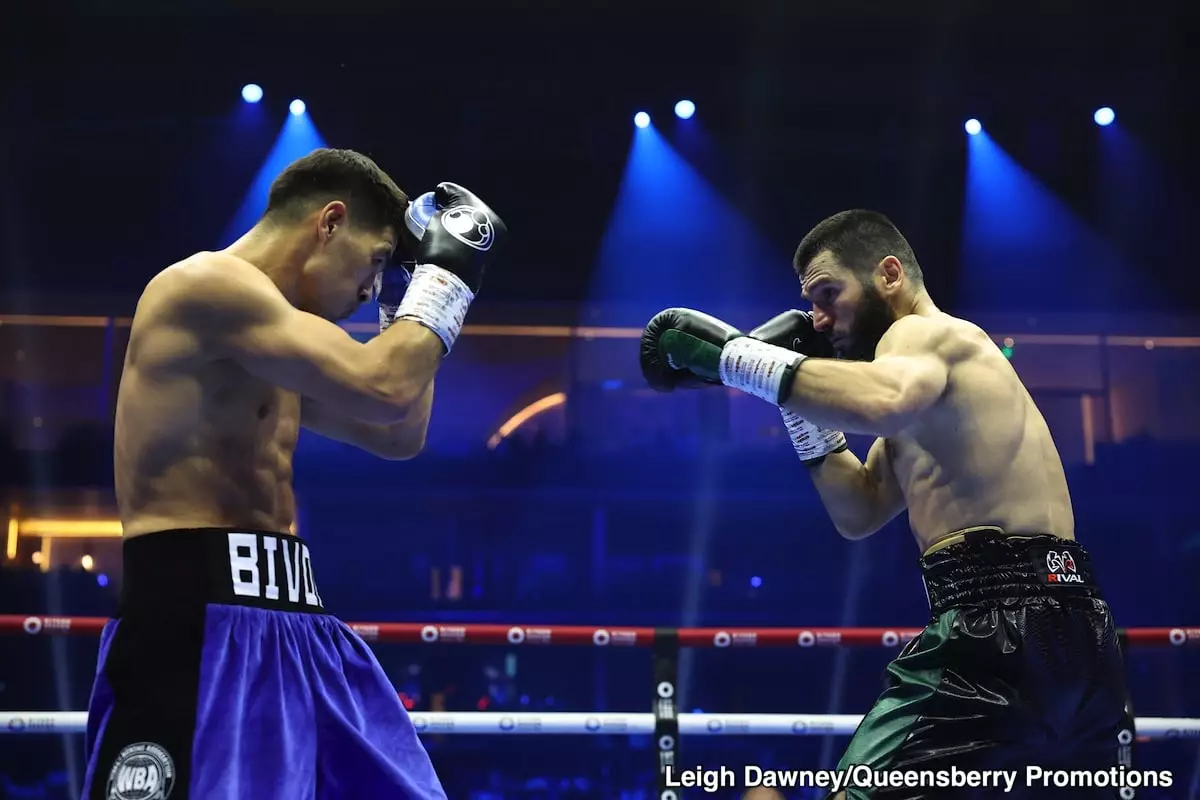The boxing world is abuzz following Dmitry Bivol’s recent appeal for a rematch against Artur Beterbiev after a closely contested bout that concluded on October 12th at the Kingdom Arena in Riyadh, Saudi Arabia. Bivol lost the fight via a 12-round majority decision, but his team contends that the “majority of viewers” perceived him as the rightful victor. While invoking the public’s opinion in such matters is not uncommon, the assertion lacks a concrete basis and raises questions about the credibility of Bivol’s claims.
Bivol’s camp has formally filed a complaint with the four main boxing sanctioning bodies, hoping to prompt an immediate rematch with Beterbiev. Their justification echoes a broader sentiment, but ultimately, it boils down to a subjective interpretation of “majority opinion.” Such a stance arguably undermines the integrity of the sport, as it relies on popularity rather than clear, measurable performance within the ring. The idea that a statistical consensus among fans can determine the legitimacy of a result is monumentally flawed, and one can only wonder about the wisdom behind Bivol’s tag team decision in this strategic aftermath.
This protest, while ostensibly an effort to enhance Bivol’s position, walks a fine line between tenacity and perceived desperation. If a rematch is to occur, it should come from the natural progression of rivalry and not from an appeal to emotion. Additionally, Beterbiev’s options are varied. More lucrative fights against boxers like Canelo Alvarez or David Benavidez could potentially overshadow a rematch with Bivol, who is now seen as a less marketable opponent following a lackluster performance.
The fight itself revealed a stark contrast in fighting styles, particularly in the latter rounds. After seeming to hold his own in the first half of the matchup, Bivol appeared to falter after being stunned in the seventh round. This marked a turning point where Beterbiev began to take control decisively. Observers noted that Bivol’s evasive tactics devolved into a defensive shell, relying heavily on movement and clinching as defensive strategies rather than seeking to impose his own offensive game plan.
Gareth A. Davies highlighted this shift, describing how Beterbiev’s relentless approach culminated in what he referred to as Bivol being “bulldozed.” The potency of Beterbiev’s punches became increasingly apparent as he pressed forward, not merely responding to Bivol’s techniques but adapting and countering effectively. Bivol’s tactics, once an embodiment of skill and finesse, began to unravel as he increasingly resorted to evasion rather than engaging or counter-attacking. This transition not only swayed judges but also significantly influenced viewer sentiment and expectation moving into the fight’s closing rounds.
The aftermath of the bout has not only raised questions about Bivol’s capacity to combat at this level but also resulted in criticism regarding the overall excitement of the match. While Bivol’s team defends the merits of his movements and defensive strategies, many fans found the lack of aggression disappointing. The long stretches of holding and evasion during the final five rounds contributed to a perception that the bout lacked fire—a significant factor for any boxing match striving for entertainment value along with competitive integrity.
Industry figures have drawn unfavorable comparisons between Bivol’s performance and that of fighters who have famously struggled to accept defeat. This narrative could cement a reputation that follows Bivol, positioning him as a fighter who shies away from the robust confrontation typically championed in boxing lore.
As Bivol seeks a rematch, the implications extend far beyond his own ambitions. The boxing community watches closely, keen on witnessing how he channels his grievances into actionable results in the ring. His next steps must balance ambition with a clear recognition of the past bout’s indisputability.
Beterbiev, on the other hand, stands poised at a critical juncture, determining his next strategic moves. Should he choose to entertain a rematch with Bivol, it would signify both a sportsman’s will to settle scores and the ever-complex dance of television ratings, fan interest, and financial opportunity in professional boxing. Moving forward, both fighters have compelling narratives to explore, but they must navigate the realities of public perception, marketability, and their legacies with care.

